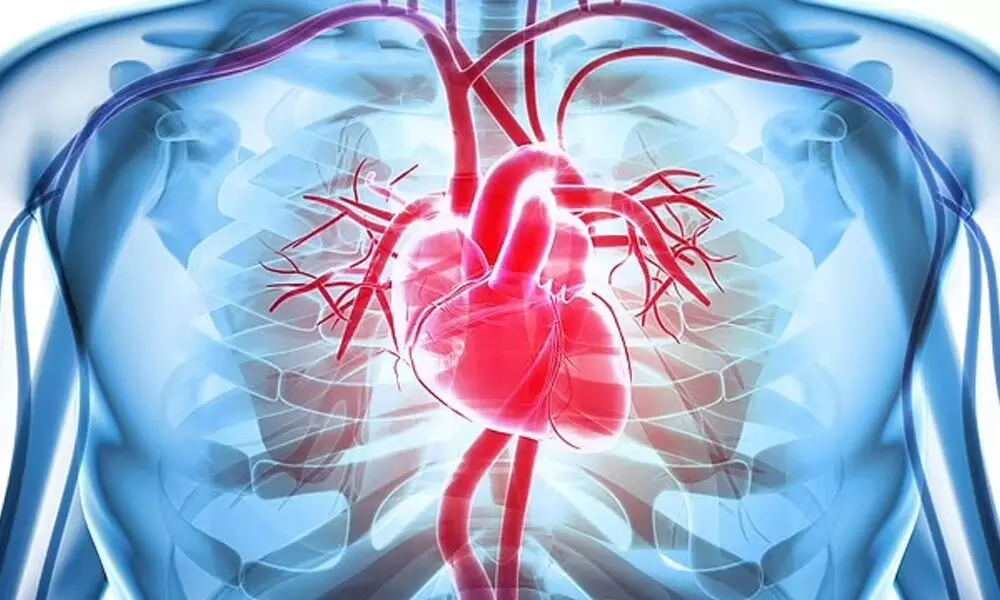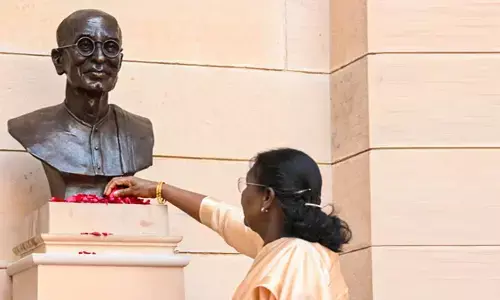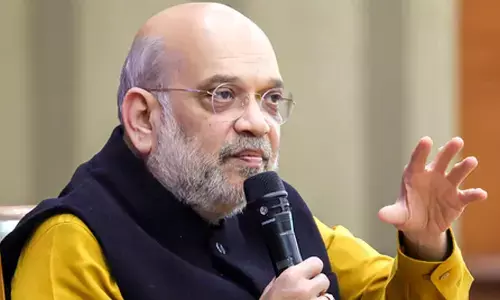Young people fail to see writing on the wall, say doctors

Young people fail to see writing on the wall, say doctors
Actor Puneeth Rajkumar’s death raises questions over fitness exercises
Bengaluru: The recent death of Kannada actor Puneeth Rajkumar has raised some questions about heart attacks among young people. The actor was known to be a fitness enthusiast and his untimely death has raised the question: Can being fit alone not prevent heart attacks?.
According to reports, Puneeth Rajkumar, aged 46 years was brought to Vikram Hospital on Friday with the diagnosis of heart attack with ECG done by a family doctor. The actor felt uneasiness while working out in the gym and was rushed to the hospital but he also complained of uneasiness before hitting the gym.
Noticeably, there has been a rise in young people succumbing to a heart attack. But doctors say that the reason for the rise in cases is due to multiple factors and Covid-19 also has a role to play.
"It's not very uncommon for Indians to experience heart attacks in the age group of 40-45 years. Compared to the west, where the heart attacks are prominent in those in the age group of 60-65 years, India is facing this issue due to increasing number of smokers," said Dr Keshava R, Director, Interventional Cardiology, Fortis Hospital, Cunningham Road.
He observed that young people often tend to ignore the first signs and end up going to the hospital quite late. "Young people believe that they can't get heart attacks. When they see the signs, they try to take gastric medicines to avoid the signs. We have had a case where a 30-year-old patient came to the hospital three days after having a heart attack. These decisions could also be influenced by the social perceptions about young people immune to heart attacks," he added.
He further added that even in the case of actor Puneeth Rajkumar, he experienced pain overnight and there was a delay in seeking medical help. "People assume that fit guys or people who eat healthily will not get heart attacks and this is the primary reason for catastrophic results," said Dr Keshava R.
Though 30-60 minutes of regular daily exercise can prevent heart diseases, extreme training and competing in endurance events can lead to heart damage and rhythm disturbances. "Research has found evidence that high-intensity exercise can acutely increase the risk for sudden cardiac arrest or sudden cardiac death in individuals with underlying heart disease. Individuals with a strong family history of heart disease, sudden cardiac death or with multiple risk factors like diabetes, hypertension, and smoking should consult a cardiologist for fitness evaluation before starting an exercise program. A strong family history of sudden cardiac death necessitates screening for diseases with genetic inheritance. Men aged 40 years and older and women aged 50 years and older should have an exercise testing before starting extreme exercise regimens in the gymnasium," said Dr Karthik Vasudevan, Senior Consultant of Interventional Cardiology at Columbia Asia Referral Hospitals, Yeshwantpur.
Dr Keshava also cautioned people against returning to gyms 6-7 months after testing positive for Covid-19, during their recovery phases. "People should ease into the exercise routine. They should engage in 1-2 months of mild exercise, followed by 2-3 months of moderate exercise before jumping into severe exercise. But, another cause for concern is the gym supplements that contain anabolic steroids that pumps up the muscles but increase chances of heart attacks," said Dr Keshava.
The pandemic induced WFH scenario is also a culpable culprit. "Due to the recent Covid pandemic, people who were into exercise also have reduced their activity levels and have become sedentary. Smoking has significantly increased in the young, leading to increased stress levels. There is no work-life balance among IT professionals. Due to this, there is an early occurrence of diabetes and hypertension among young which is going unnoticed. There are a few heart rhythm and heart muscle disorders which can be picked up by regular ECG and echo screening which if not treated on time lead to sudden cardiac death." said Dr Divya Marina Fernandes, Consultant, Interventional Cardiology and Heart Failure Specialist, Aster RV Hospital.
She also noted that people have stopped getting regular health checks done in fear of pandemic and this is leading to delay in diagnosis of heart attacks. "Narcotic and recreational drug usage has also significantly increased. They can lead to heart attacks on their own and very fast heart rates called ventricular arrhythmia leading to sudden cardiac death even in the absence of cholesterol deposits."
Doctors suggest that young people above 30 years get a health check done which includes ECG, ECHO and a TMT to diagnose and treat cardiac issues at the earliest. "If you notice any signs, immediately go to a heart hospital and get an ECG to confirm your heart status," says Dr Keshava R. Noting that timely help is the key factor in mitigating a catastrophic situation, doctors also suggest that all gyms should be equipped with Automated External Defibrillator and the staff should be trained to provide basic life support and CPR.








